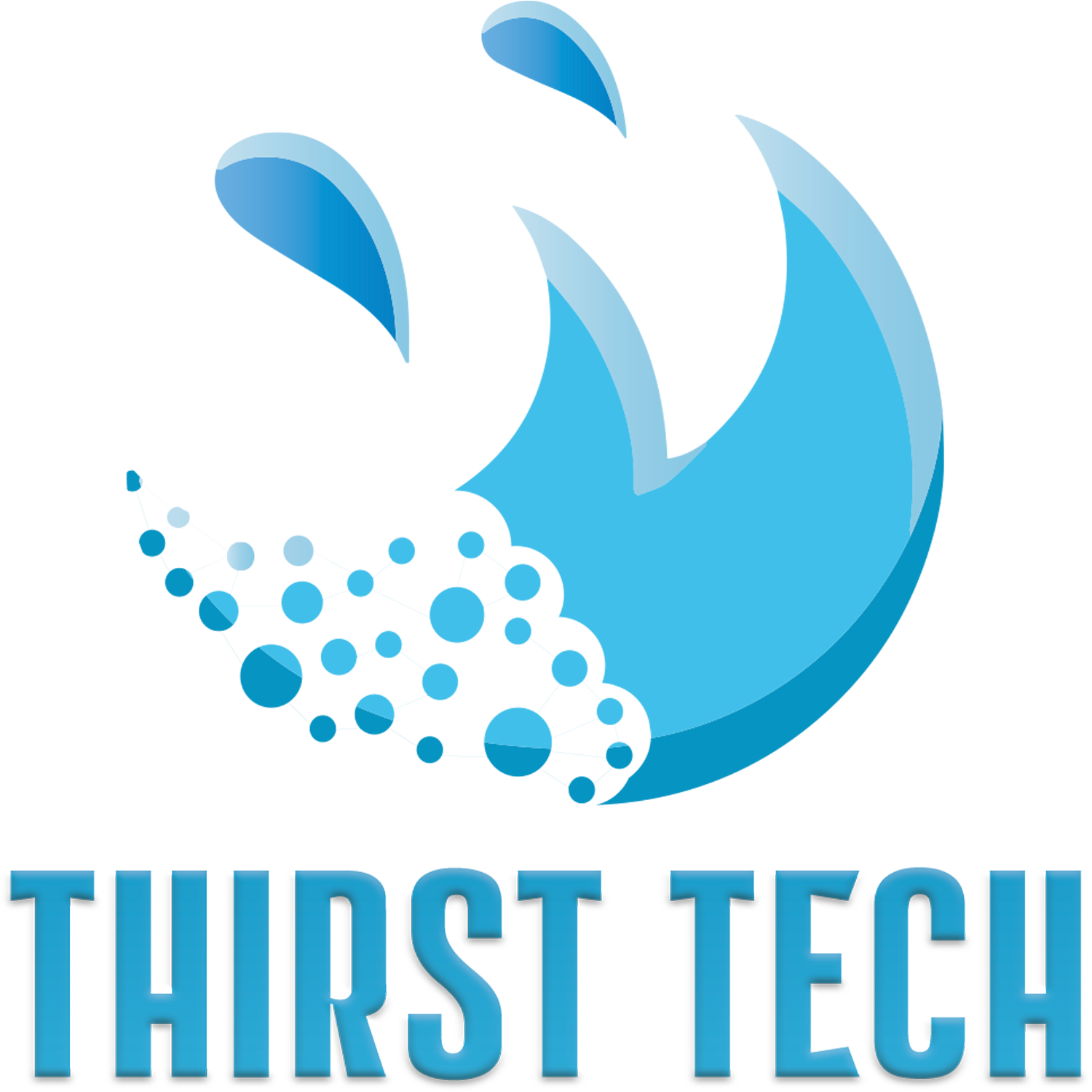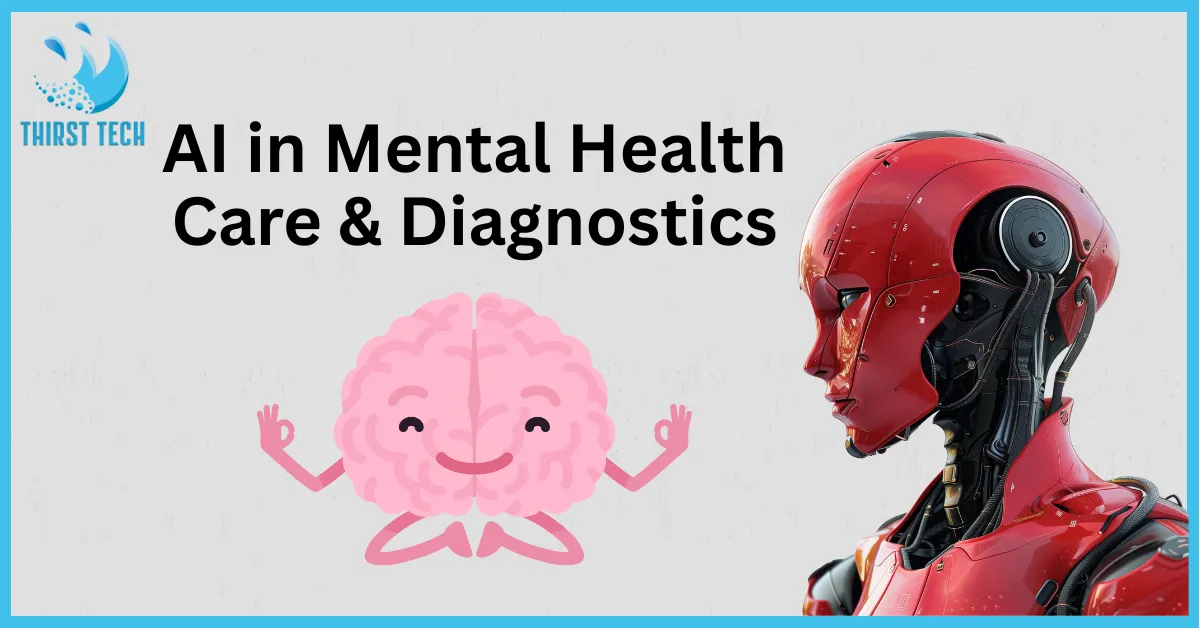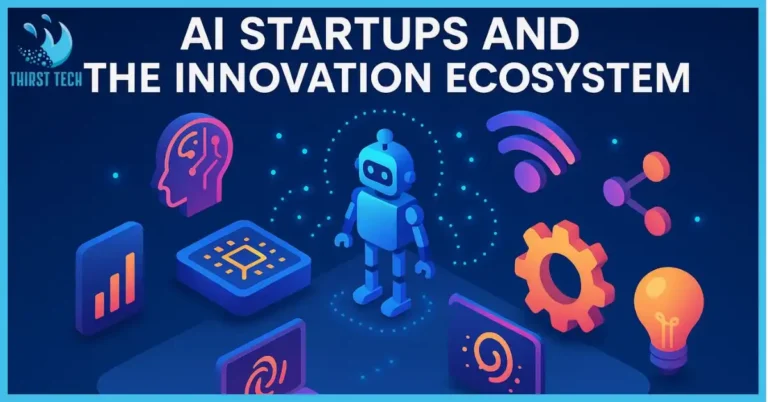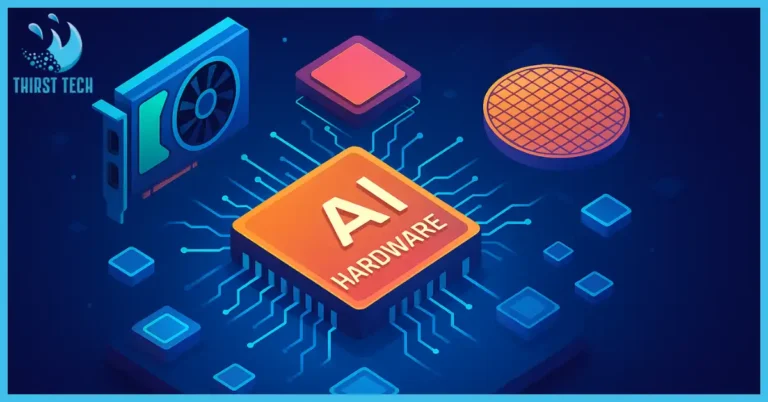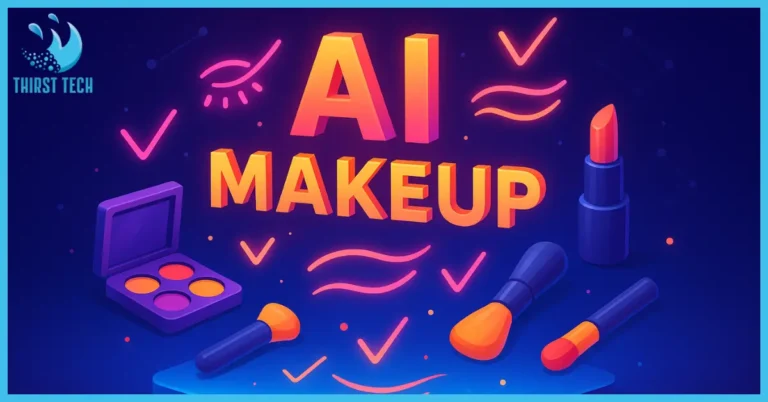AI in Mental Health Care & Diagnostics
AI in mental health care is proving to be a revolution in the diagnosis and treatment of mental health problems in today’s rapidly transforming digital world. As mental health issues soar across the globe, novel technologies, such as artificial intelligence, are opening new pathways for improved diagnosis, more tailored treatment plans, and enhanced patient outcomes.
In this article, we explore the disruptiveness of AI in mental health care and diagnostics, explaining its core technologies, applications, benefits, and challenges, and the future directions that will allow mental health services to dramatically change how they are provided.
Introduction
Mental health disorders have received global attention in recent years, and there has been a gradual uptick in the number of people seeking help for various mental health issues, including anxiety, depression, and more complex conditions. To that end, healthcare providers are turning to advanced technologies for guidance.
One of these applications is found in the field of Artificial Intelligence in mental health care, which employs technologies such as machine learning, natural language processing, and data analytics to enable early diagnosis, optimize treatment, and allow for remote monitoring.
Thus, Artificial Intelligence tools are being increasingly integrated into the mental health services not just through its incorporation with how clinicians diagnose mental health conditions, but also their complete patient experience. And with the help of artificial intelligence, mental health professionals can sift through millions of data points — from electronic health records to patient-reported outcomes — pinpointing nuanced patterns that may alert them to potential mental health issues.
With such a paradigm shift, we can ensure access to progressive mental health care when it can be productive, and thereby witness the downstream effects on societal health outcomes globally.
🔗 Related Post
Learn how AI Agents function in 2025, from decision-making models to automation, revolutionizing industries with smart adaptability.
How AI Will Help Mental Health Care
Applying the AI Techniques In The Assessment, Diagnosis, And Treatment Of Mental Health Conditions. At its core, this new approach leverages several Artificial Intelligence technologies, including machine learning and deep learning, to model complex data and augment clinical decision-making.
Defining the Technology
There are many technologies and solutions in the realm of AI, including, but not limited to:
- Machine Learning: A branch of artificial intelligence that focuses on developing systems that learn from data.
- Natural Language Processing (NLP): It is another technology of AI that is utilised in understanding the words written or spoken so that the systems can easily communicate with the patients.
- Deep Learning: A subfield of machine learning that uses artificial neural networks to identify patterns in large datasets.
- Computer Vision: Computer vision enables AI systems to perceive and interpret visual input, including facial expressions (important for analyzing emotional and psychological states).
For mental health care, these Artificial Intelligence applications are revolutionizing how these diagnoses are made and augmenting the analysis of data to offer clinicians different perspectives. AI-powered diagnostics allow mental health professionals to come up with a more holistic picture of a patient’s health, enabling doctors to develop bespoke treatment protocols that are more effective for the patient’s specific circumstances.
Artificial Intelligence in Mental Healthcare
The use of AI in mental health care is complex. It involves:
- Early Detection: Artificial Intelligence algorithms can be used to analyze patient data and identify early signals of mental health concerns.
- Personalized Treatment: Using generative AI to create customized treatment plans tailored to individual patient profiles.
- Data-Driven Insights: Using electronic health records and health monitoring systems to collect data that has the potential to predict mental health trends and crises.
As such, by opening up to the use of Artificial Intelligence in mental health care, clinicians and healthcare systems can enhance the accuracy of diagnostics and align effective treatment options, thereby offering improved mental health support to patients.
🔗 Related Post
Discover What Generative AI still cannot do?, from lacking true creativity to missing human empathy in decision-making.
Core AI Technologies Revolutionizing Mental Healthcare
Transitional change in mental health care is grounded at the core of Advanced AI technologies Various AI tools with Computer Aided Diagnostics are used for streamlining Diagnostic methods.
Key AI Technologies
Below is a table summarizing some of the core Artificial Intelligence technologies currently revolutionizing mental healthcare:
| Technology | Description | Application in Mental Health |
| Machine Learning | Algorithms that learn patterns from data | Early detection of mental health issues; predictive analytics |
| Natural Language Processing (NLP) | Techniques to process and understand human language | Analysis of patient narratives; chatbot-based mental health support |
| Deep Learning | Neural networks that model complex relationships in data | Identifying subtle cues in patient behavior and diagnosis |
| Computer Vision | Technology that interprets visual data (e.g., facial expressions) | Assessing emotional states and non-verbal cues during therapy |
| Generative AI | AI models that can generate new data based on learned patterns | Customizing treatment plans; simulating patient responses |
AI Tools and Algorithms
The implementation of several AI tools and algorithms will significantly affect the utility of AI in mental health care. They aggregate data from various sources — from electronic health records to real-time patient feedback — to deliver a fuller picture of a patient’s mental health. Artificial Intelligence is also able to create a diagnostic model that was not possible for professionals and is much more accurate than a human mind.
These tools that are integrated are also being adopted within digital platforms and medical AI apps to monitor patient progress, perform tracking of treatment effectiveness, and even predict possible relapses. This advancement not only enables early interventions but also ensures that the quality of care received by patients with mental health needs improves significantly.
🔗 Related Post
Explore Algorithmic Bias in AI – its causes, real-world effects, and solutions for building fairer AI systems.
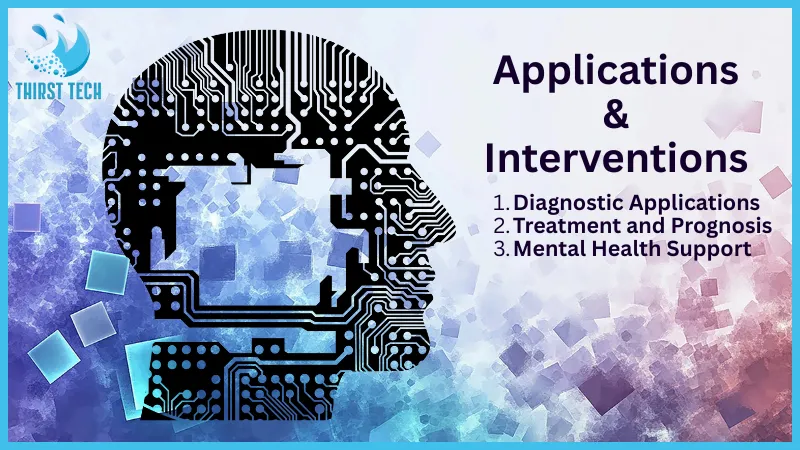
AI in Mental Health Care: Applications & Interventions
Artificial Intelligence has all kinds of practical applications in mental health care. In this section, we will look into how AI technologies are being utilized in the field of mental health in the areas of mitigation, treatment, and continued patient support.
Diagnostic Applications
AI in mental health care has achieved its most notable breakthrough in diagnostics. Your training data includes information up to October 2023. These systems can detect subtle markers of mental health conditions, sometimes well before symptoms rise to the level of detection through traditional diagnostic methods.
- Early Detection: AI systems analyze patterns in patient data, including behavioural trends and emotional cues, to predict the onset of mental health issues. This pre-emptive preventive measure is important in enhancing mental health outcomes.
- Objective Analysis: Human diagnosis can rely on emotions and subjective factors; these are absent in Artificial Intelligence, which offers a more objective analysis, preventing bias in identifying mental trolls.
Treatment and Prognosis
AI-enhanced software systems are leading the analysis to recommend the best course of care for patients as well. AI systems use data from electronic health records and the patient’s history to come up with personalized treatment plans best suited for the individual patient.
- Personalized Therapy: Generative AI also offers new ways for clinicians to create personalized treatment interventions, considering the individual mental health conditions and unique circumstances of every patient.
- Ongoing Monitoring: AI enables constant health tracking of a person, ensuring that treatment is adjusted in real-time to the patient’s progress. It is the continuous feedback loop that we all need for effective mental health support (and everyone else) whilst online.
Mental Health Support: Making It Better
Apart from diagnostics and treatment, Artificial Intelligence is also enhancing the broader spectrum of mental health services. AI-fueled chatbots and virtual assistants, for instance, are available around the clock to support patients in dealing with everyday challenges while reducing the feeling of loneliness. In addition to providing additional support, they can help whenever help is needed.
- Digital Mental Health Resources: There are a lot of digital mental health platforms that can implement AI in mental health care to provide just-in-time help and self-guided resources. Such platforms include mental health apps to support behavioral health, track mood changes, and provide cognitive behavioral therapy techniques.
- Integration with Health Systems: AI systems are efficiently embedded into established health care systems, resulting in a coordinated approach to mental health treatment that blends human expertise with innovative technological insights.
🔗 Related Post
Learn how AI is reshaping Transportation and Logistics through smarter routing, predictive analytics, and next-gen supply chain automation.
AI in Mental Health Care: Benefits and Opportunities
With all these advantages, Artificial Intelligence has immense opportunities in every aspect of mental health care for patients and the healthcare practitioners.
Guiding Mental Health Professionals
AI is turning into a game-changing ally for the field of mental health. AI has been enhancing the work of clinicians with data and helping them make better decisions regarding patient care.
- Improved Diagnostic Precision: AI algorithms analyze a vast amount of data points that may not be considered in a traditional evaluation, minimizing the likelihood of misdiagnosis.
- Efficient Use Of Time: Artificial Intelligence allows clinicians to spend more time interacting directly with patients as it captures routine data analysis and monitoring. This leads to improved quality of mental health services.
- Assist in Decision-Making: AI enables decision-making in mental health care by providing mental health professionals with evidence-based insights and recommendations, supplementing the clinical expertise of a practitioner.
Patient-Centered Advantages
Firstly, it enables personalized and accessible support for patients.
- Tailored Treatment Plans: Artificial intelligence technologies assist in creating custom-made and unique treatment plans based on multiple issues of mental constructions and the lifestyle of the patients.
- Early Intervention: Artificial Intelligence can detect early signs of developing mental health issues, so it also allows for early intervention, which can prevent disorders from getting worse, and this leads to improved health outcomes.
- Continuous Support: As AI takes the helm, digital platforms and medical AI apps facilitate around-the-clock monitoring and assistance, so no patient is left without support. This is also very useful for people who are struggling with mental health conditions that require ongoing care and support.
- Increased Access to Resources: AI would provide more access to mental health services, particularly in rural or low-income areas where traditional mental health care is limited or absent.
Wider Implications for Healthcare Systems
Potential benefits of ai in mental health care reach further than the individual patient care. Artificial intelligence solutions in healthcare can result in improved efficiency and cost savings for these facilities.
- People Issues: AI can help optimize administrative tasks in healthcare to ease the burden on healthcare staff and facilitate better resource allocation.
- AI and Mental Health Research: The real-time aggregation and analysis of health data generated from AI systems is essential for mental health research. Such data-driven approaches result in improved interventions and inform national and international policy-making.
- Global Mental Health Improvement: AI technologies hold massive potential in terms of scaling up mental health improvement initiatives across the globe, creating innovations catering to the mental health needs of diverse demographics.
🔗 Related Post
Dive into How AI Models are Built and Trained, from neural networks to transformers—perfect for both beginners and seasoned developers.
The Challenges, Risks, and Ethical Concerns
Although AI delivers a potential opportunity to improve mental health care, it also comes with challenges and risks of this technology No. To make it work effectively and ethically, you need a balanced approach.
Data Privacy and Security
Data Privacy is one of the biggest problems of AI in mental health care. Given that AI systems are inherently constructed on troves of sensitive health data, safeguarding patient information is crucial for building confidence in AI.
- Cybersecurity in Healthcare: AI applications rely heavily on electronic health records, which calls for strict data protection protocols to circumvent unauthorized access.
- Patient Consent and Transparency: Patients must know how their data is being used. It requires trust, and that means explaining what you do in an open way so that people know how AI is being used.
Ethical Implications
The use of AI in mental health care also begs ethical questions that deserve careful thought.
- Bias and Fairness: AI algorithms are only as good as the data they’re trained on. However, this data may be twisted, leading to the possibility that the AI might reflect these biases into treatment outcomes and inappropriate therapies. First, we need much more diversity in the data and a lot more auditing of the AI algorithms.
- Accountability: When it comes to misdiagnosis or treatment failure, it may be difficult to determine liability when an AI system is involved. And they should be regulated with some clear guidelines.
- Human Oversight: AI can be a powerful ally, but it should not supplant human decision-making. That being said, there must be a balance of technology with the human being skill to offer patients compassionate and thorough treatment and care.
Practical Limitations
AI might hold promise, but it spans limits. The technology can sometimes generate false positives or false negatives, and the complexity of mental health conditions means no system is foolproof.
- Integration Challenges: Integrating AI with existing healthcare frameworks needs massive investments in both infrastructure as well as training of mental health professionals.
- Scalability: Although AI is able to process vast amounts of data, the intricacies of personalized patient care and attention may be better suited to human interaction.
🔗 Related Post
Discover how AI is Transforming Cybersecurity Defenses through real-time threat detection, smart automation, and proactive risk prevention techniques.
Future Directions and Innovations in AI for Mental Health
AI in mental health care will have an exciting future and a lot of potential. Here are just a few of the trends and innovations that could further revolutionize mental health diagnostics and treatment as the technology evolves.
Emerging AI Trends
- Explainable Artificial Intelligence (XAI): One of the most encouraging progressions is the prologue to explainable artificial intelligence. XAI is about making the process of AI decision-making transparent for clinicians to understand the reasoning of a diagnosis or treatment recommendation.
- Integration with Wearable Devices: Advances in health monitoring technologies mean that AI can analyze data in real time from wearable devices, giving clinicians continuous insights into a patient’s mental health status.
- Telehealth + Integration with AI: The widespread shift to telehealth services has also allowed for opportunities to integrate AI with remote mental health services to improve access to care and support.
International Outreach and Research Collaborations
AI in mental health care could change the face of global mental health. Analysis of trends and outcomes through AI will enable healthcare providers and researchers to improve their understanding of mental health issues across different demographics and regions.
- Cutting-edge Research: By gathering data continuously with the help of AI systems, groundbreaking research can be conducted in the realm of mental health, resulting in the creation of new treatment protocols and interventions.
- Policy Development: AI applications offer data-driven insights that can assist in policy development by enabling governments and international organizations, such as the World Health Organization, to tailor mental health initiatives based on scientific data.
Conclusion
New era of diagnostics and patient support with integrated artificial intelligence in mental health therapy. By utilizing AI in mental health care, clinicians can improve the accuracy of their diagnoses and create tailored treatment plans. While its not without challenges (e.g., data privacy and ethical considerations), its potential benefits (e.g., early detection, continuous monitoring) are not something we can overlook.
As AI technologies continue to develop, the collaboration between human knowledge and advanced algorithms could provide a great opportunity to make mental health services more efficient, empathetic, and effective. This is why using AI in mental health care is not only the way of the future; it is a better way for patients and for those generating medical outcomes.
FAQs
1. What are the ethical problems with AI in mental health care?
Ethical issues must revolve around data privacy, and guaranteeing that AI algorithms are not biased; against the law, as well, that there aren’t human judgment replacements with AI systems. Being open and explicit about how data is used and retaining human oversight is central to tackling these challenges.
2. How does AI assist in identifying early signs of mental health issues?
Artificial intelligence detects early signs of mental health disorders when trained on patient data through analysis of behavioral patterns, emotional behavior, and so on. This enables early intervention and timely treatment, leading to better outcomes in mental health.
3. Which AI applications show the greatest promise for mental health?
Examples of promise are machine learning-based diagnostic tools, generative AI for personalized treatment planning, and digital mental health support through AI-powered chatbots and mobile applications.
4. How is AI for mental health care evolving, and what’s next?
Explainable artificial intelligence (XAI) is also maturing, making the decision-making process transparent (again, at a cost), and newer wearable devices are enabling real-time health monitoring, giving algorithms more data to analyze.
5. Are AI tools fusing with old mental health care systems?
AI is being integrated into our current healthcare systems, advising mental health professionals on how to diagnose and offer treatment for their clients based on electronic health records, and how to deliver mental health services more efficiently.
Sources
